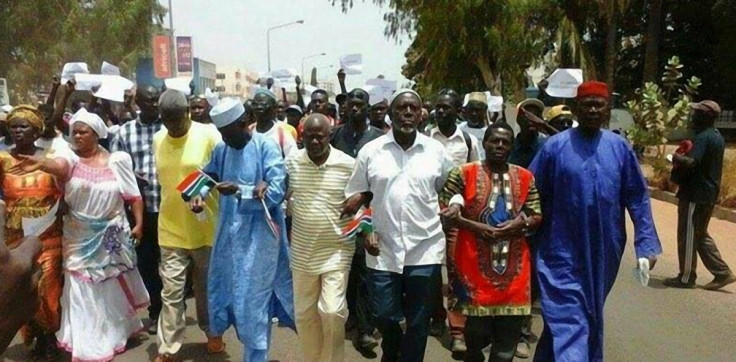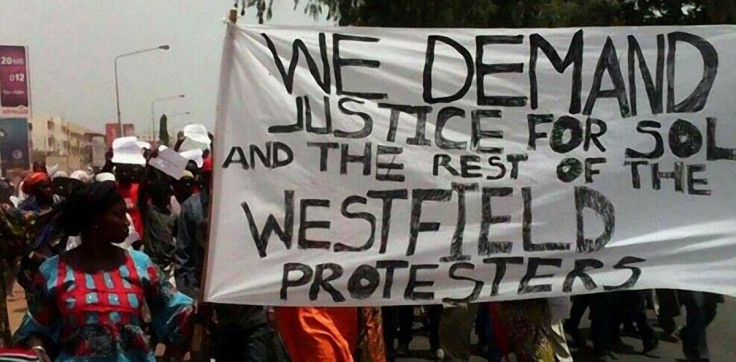Gambia government repression 'could degenerate into pre-election violence' warns FIDH

The International Federation For Human Rights (FIDH) has condemned the bloody repression against the opposition underway in the Gambia, after police cracked down on peaceful demonstrations last week, resulting in the arrest of dozens of opponents and the death in custody of three of them. This comes as the small West African country prepares to head to the polls to elect a new president in December 2016.
Since his accession to power after a coup in 1994, incumbent president Yahya Jammeh has been accused of systematically silencing all opposition and questioning voices. He will run under his ruling Alliance For Patriotic Reorientation And Construction (APRC) party.
FIDH and member organisations of the #MyVoteMustCount Coalition on 21 April condemned the "bloody crackdown by Gambian police" on the demonstrations held on 14 and 16 April, fearing repression against political opponents, independent journalists and human rights defenders could degenerate into pre-election violence.
"Eight months ahead of the presidential election, our organisations call upon the Gambian authorities to stop the repression against the opposition, to shed light on the death in custody of the three opponents, to release all those arbitrarily detained and to organise free, multi-party and transparent elections," Drissa Traore, FIDH vice president, said in a statement.
"Gambian authorities must immediately stop the ongoing repression, release all those arbitrarily detained, and shed light on the serious crimes perpetrated during the weekend of April 14 to 16, including on the circumstances of the death of the three opponents. Those responsible for these crimes must be identified and prosecuted before independent courts," Traore added.
14 April
Police "violently represses" a demonstration organised in the capital Banjul, against the reforms of the 2009 Elections Act introduced by the government in July 2015, regarding in particular the conditions of participation in the presidential election.
Police carried out many arrests, FIDH confirmed, including that of Ebrima Solo Sandeng, a leader of the United Democratic Party (UDP), the country's main opposition party.
Solo Sandeng died on 15 April in detention in circumstances FIDH described as "indicating that his death may have been caused by torture and other ill-treatments". The United Nations (UN) confirmed two other UDP activists died in custody. No more information was available.

16 April
Security forces again violently repressed a popular demonstration, which was calling for justice after Solo Sandeng's death, and the release of arbitrarily detained persons. FIDH described how police used tear gas and bullets to disperse the demonstrators.
A number of activists were seriously injured and arrested after being beaten during the demonstration, including Fatoumata Jawara, leader of the youth section of the UDP, and Nogoi Njie, second vice-president of the women's wing of the party.
Oussainou Darboe, leader of the UDP, and dozens of other opponents arrested during the demonstrations "are still held incommunicado", FIDH confirmed.
The African Commission On Human And Peoples' Rights and the UN condemned the crackdown. The world organisations called upon the Gambian regime to conduct an independent investigation into the death in custody of the three opponents and on the violence against protesters. They demanded the immediate and unconditional release all persons arbitrarily detained.
In a public address on the issue, Information Minister Sherrif Bojang told AFP the protests held last week were unauthorised as people had failed to ask for permission.
"This is the Gambia, we have rules and laws governing us and one of the laws states that before you embark on such a thing, you must seek and obtain [a] permit from the police and this isn't done in this case and they were dispersed and detained," Bojang said.
© Copyright IBTimes 2025. All rights reserved.






















